Interviews
Grandfather's interrogations during World War II
It was clearly to me like most of the incarceration it was economics. He was a business leader and the Kibei thing was a huge part of it, the fact that he was educated there. I think there was also some confusion whether was he was Issei or Nisei because of that, in coming back to Hawaii from Japan because after Sand Island (and he spent several weeks there), they sent him on a tour of US Army Interrogation centers. I think he went to Wisconsin, Louisiana, somewhere in Arizona, before he came back to Hawaii.
Nobody never said anything about that, the only thing I remember my grandmother saying was that he came back thirty pounds lighter then when he left. And again these were interrogations. I’m sure they woke him up in the middle of the night, the whole bit, trying to figure out something, some tie to Japan. Anyway when he came back in Hawaii, later in the year of ’42, probably October/November, he told my grandmother that “for certain they’re gonna send me back to one of these concentration camps because they still considered me a threat.”
Date: April 25, 2018
Location: California, US
Interviewer: John Esaki
Contributed by: Watase Media Arts Center, Japanese American National Museum
Explore More Videos

Dusty Weather at Topaz, Utah
(b. 1934) Award-winning Disney animation artist who was incarcerated at Topaz during WWII

Mother in Camp
(b. 1934) Award-winning Disney animation artist who was incarcerated at Topaz during WWII
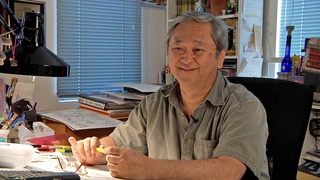

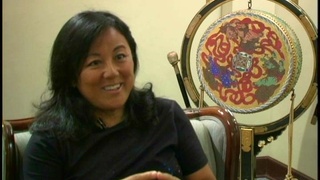
Necessary apologies (Spanish)
(b. 1962) Peruvian Poet, Okinawan descendant
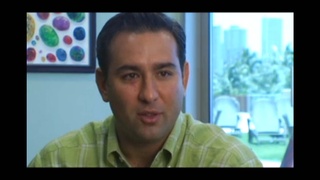
Never feeling discriminated against in Hawai‘i
Hawaiian businessman, developer.
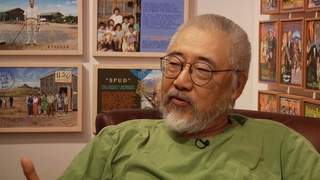
Getting measles at the camp
(b. 1938) Japanese American painter & printmaker

Differences between Parents
(b. 1938) Japanese American painter & printmaker



His mother’s experience of the camp
(b. 1938) Japanese American painter & printmaker
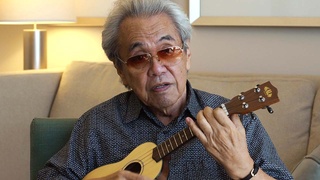

Mother taught him how to play the ukulele
(b. 1934) Ukulele player from Hawaii

Inspired to play ukulele after hearing Eddie Kamae
(b. 1934) Ukulele player from Hawaii

